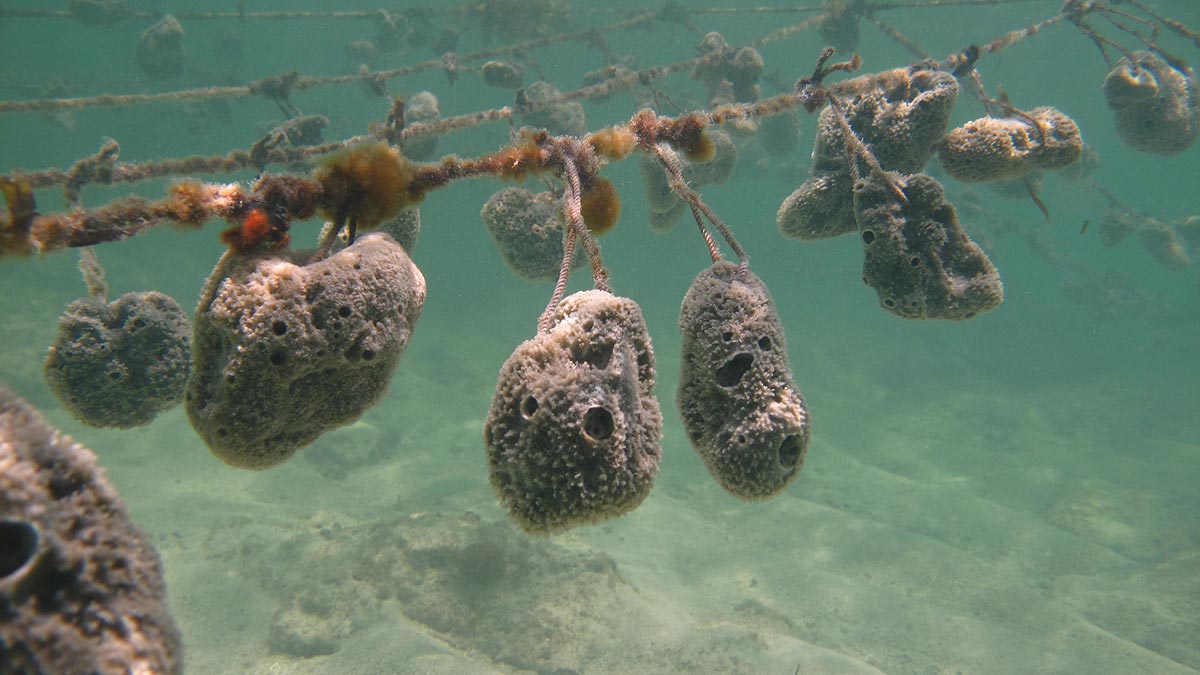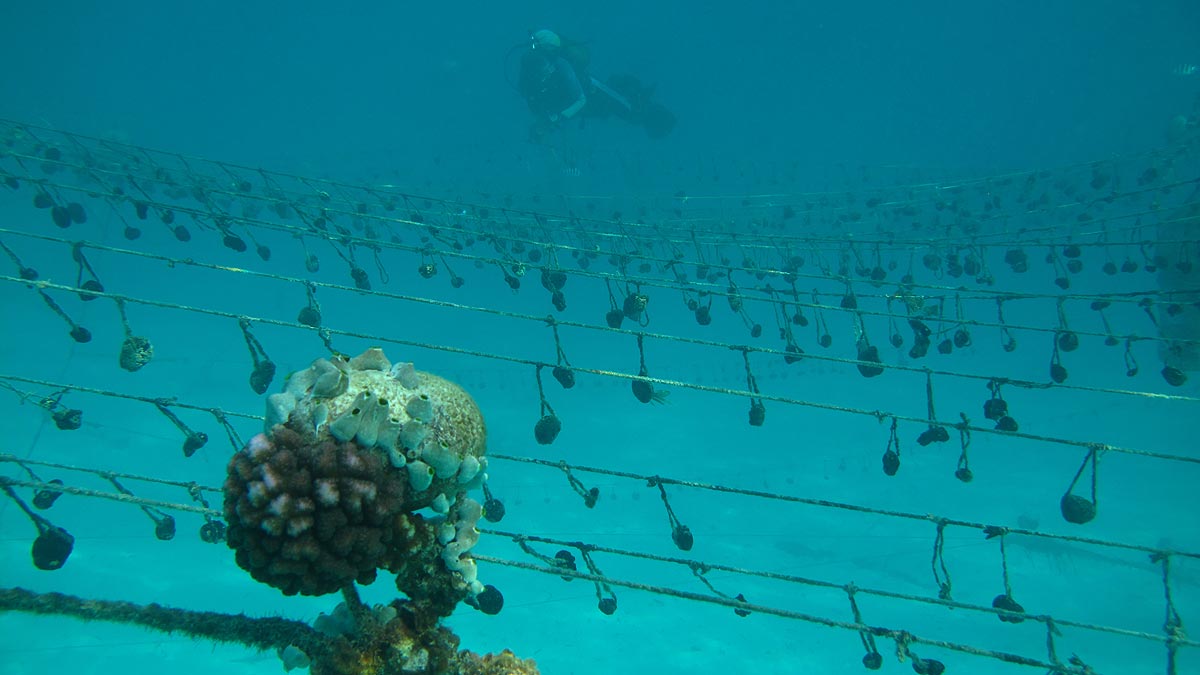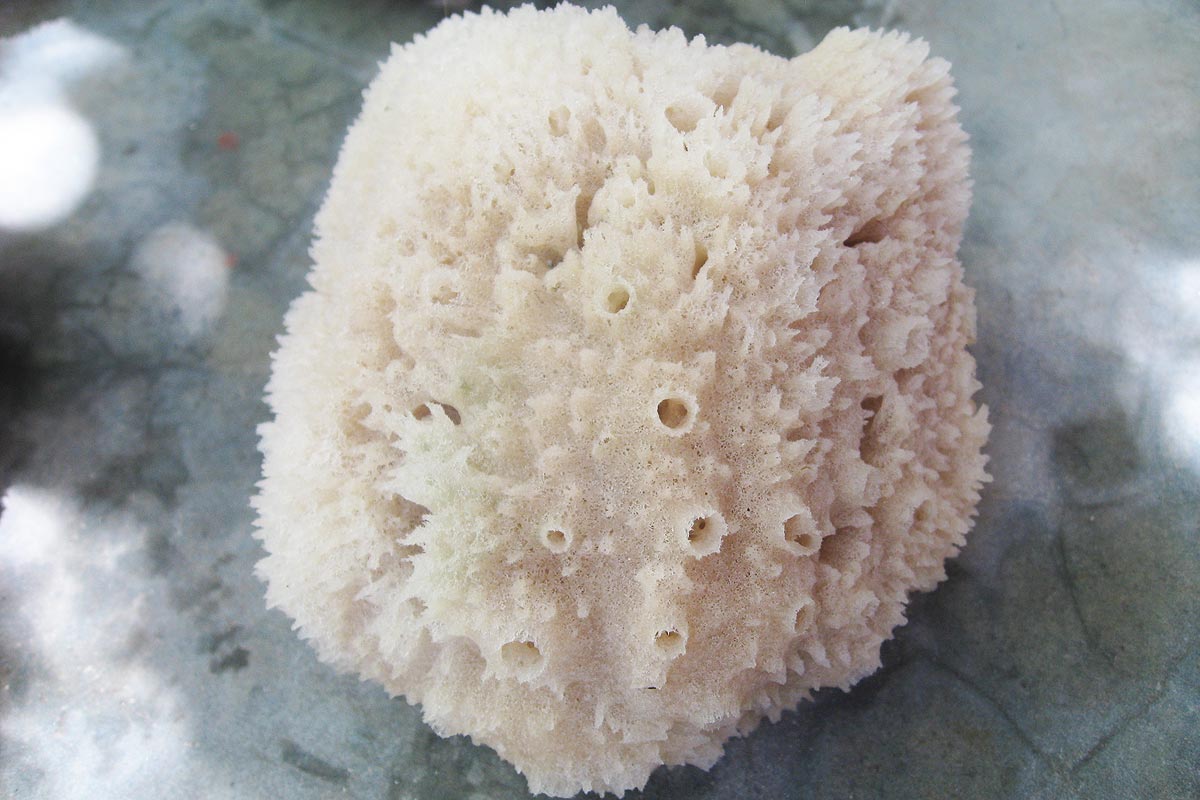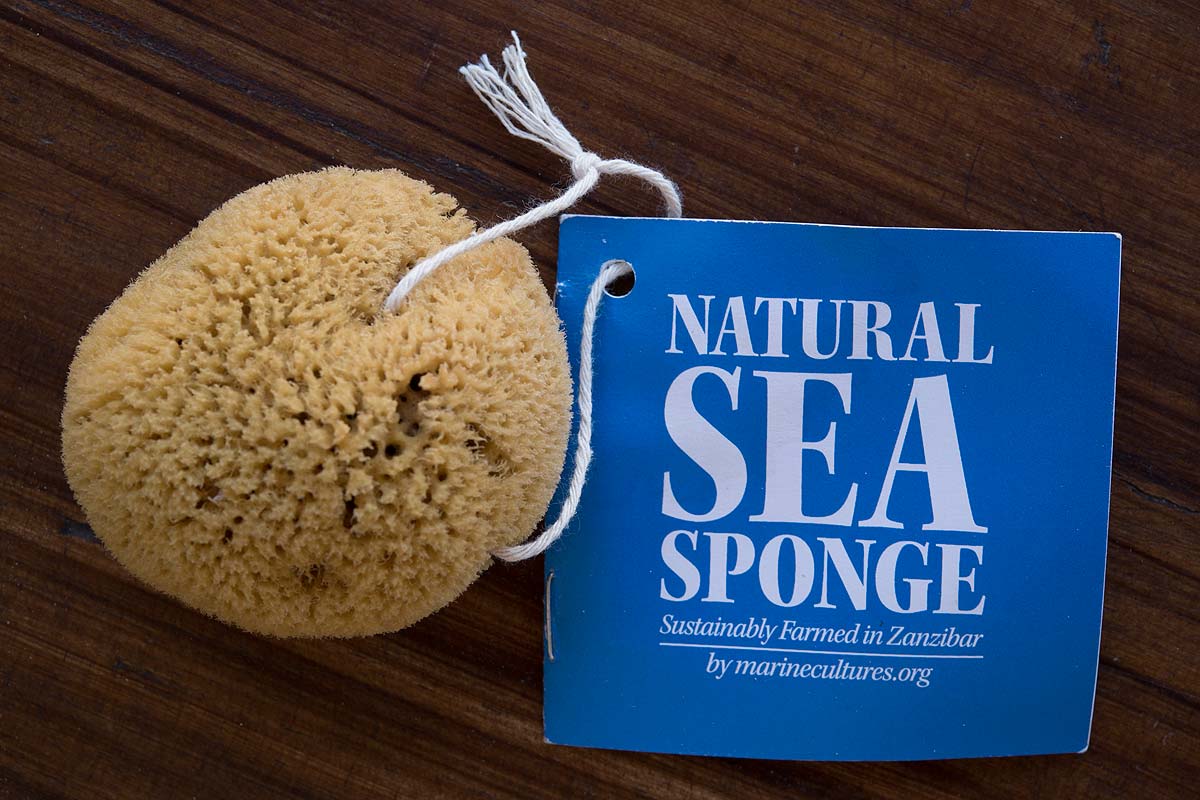Application and Care of Natural Sponges
Our sponges are unique. Nowhere else in the world is our species (Callyspongiidae - Haploslerida) cultivated. The applied aquafarming has no negative effects on the natural sponge populations. Strict care is taken not to damage natural habitats, especially coral reefs and seagrass areas.
The sponge farms are managed by the farmers, mostly single mothers, after completion of their training. With the purchase of our Fairtrade products you support the coastal regions in Zanzibar in the development and application of sustainable cultivation methods which take into account the preservation of the ecological balance in the sea.
>> Where can I buy our sponges?
Why is a natural sponge useful?
Our sponges can be used as pleasant bath sponges, for applying or removing cosmetics, in nursing care and for applying or removing paint in painting. Natural sponges are free of allergens and are therefore often recommended by dermatologists for the care of babies and sensitive skin. A major advantage of natural sponges over synthetic sponges is their continuous channel system, which allows dirt particles to be efficiently washed out.

Why are sponges cultivated?
Our oceans are suffering from overexploitation by humans. Until recently, there was a great demand for natural sponges. Wild stocks have been severely overfished and are largely endangered.
Sponges are animals, not plants. Sponges live on the seabed, where they have permanently grown together with the substrate. A sponge has thousands of interconnected chambers through which seawater is continuously pumped. The diet of most sponges consists of tiny food particles and plankton filtered from the water. The flowing water also serves to dispose of waste products. This continuous chamber system is the reason for the enormous water storage capacity of natural sponges.
Are the prices justified?
Large natural sponges are rare and expensive because they are "overfished" and traded as a high-priced luxury product. Our sustainably cultivated sponges are worth much more because they are maintained by our sponge breeders for more than a year and this work deserves a fair wage.

Additional Information

Do Natural Sponges Need Special Care?
Natural sponges are very resistant and can be used for many years if properly treated.
Rinse your sponge thoroughly with clean water after each use and then carefully squeeze it out.
Let the sponge dry completely, e.g. on a grid, or use the sponge regularly. This will ensure that the air circulates around the entire sponge.
What you should not do:
- Never use force when the sponge is dry. Make it wet always.
- Do not leave soap or other solvents in the sponge after use.
- Do not dry your sponge on a radiator, this will make the sponge brittle.
- Do not apply force to a fully dried sponge. You could tear it.
- Do not use chemicals to clean your sponge.
- Do not wring your sponge out excessively and do not wash it in the washing machine.
If you feel that your sponge needs more thorough cleaning, the following recipes are recommended:
- 1 to 2 drops of tea tree oil in 1 cup of warm water,
- 1 tablespoon cider vinegar in 1 cup of warm water,
- 1 tablespoon sodium bicarbonate in 1 cup warm water,
- 1 teaspoon of colloidal silver in 1 cup of warm water or 2% (v/v) hydrogen peroxide in water for 2 minutes.
Soak the sponge in one of the above solutions for a few minutes and then do not forget to rinse the sponge thoroughly with clean water.


